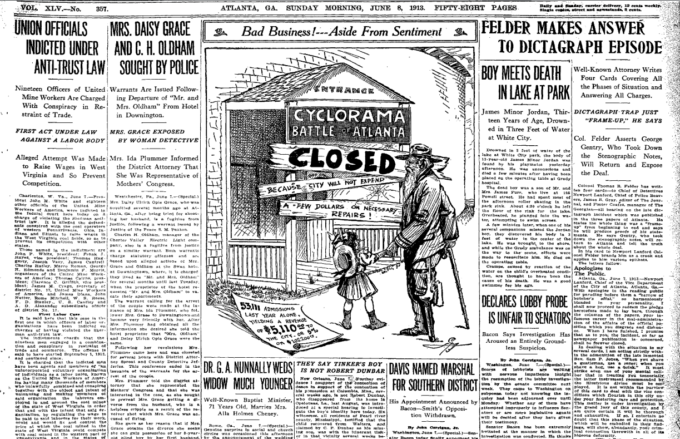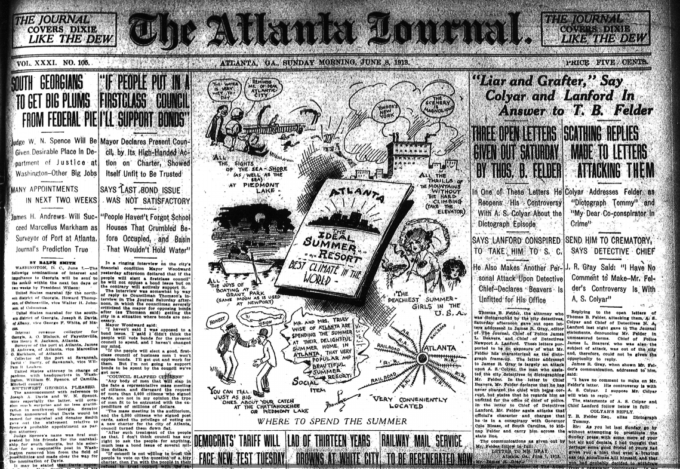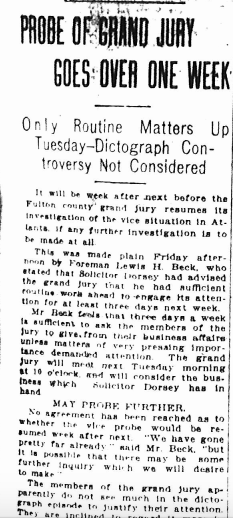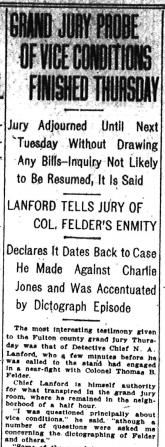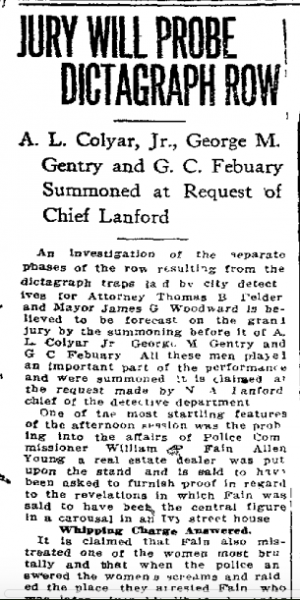
Caption reads: Detective Harry Scott (in Panama hat), of the Pinkertons, who played the hunch that Jim Conley, the negro, knew something of the girl’s murder. The accompanying figure is Detective John Black, of police headquarters, whose work in co-operation with the Pinkerton man did much to solve the crime. Great dependence will be put in their testimony at the coming trial of Leo Frank, charged with the murder of Mary Phagan.
Another in our series of new transcriptions of contemporary articles on the Leo Frank case.
The Atlanta Constitution
Sunday, July 13, 1913
By Britt Craig.
Have you ever had a hunch that there wasn’t anybody around the table that held a higher hand than your Jacks over tens and consequently you shoved a ‘blue’ to the mahogany with the result that every hostile hand went to the discard?
Have you ever had a hunch that it was going to rain and you pulled in the rugs and took the clothes off the line and let down the windows just in time to see the elements express themselves in a downpour?
Have you ever had a hunch of any kind—one of those real, undeniable inner promptings that chases round and round in your bonnet and worries the life out of you and invariably forces you to do something that you really intended doing but about which you were sorely undecided?
If you’re human, you have.
Detective Harry Scott had one about Jim Conley, the negro sweeper in the Phagan mystery. It was one of those irresistible hunches that buzzes about like a June bug. He took it for its word with the result that he found the key that is predicted to unlock the secret of Atlanta’s most hideous murder.
Detectives are very normal beings. They have hunches like the weakest of us. They’re superstitious, too. You can’t find a single one that will walk under a ladder or fail to knock wood when he brags about himself.
A hunch is one of the most common of human afflictions. It is the very essence of a frailty that affects every normal somebody. The very fact that it is a weakness requires a nerve of steel and backbone of similar fortitude to play one to the limit like Detective Scott played his.
Good detectives, like genius, are utterly human. Genius frequently stalks about in its shirt sleeves without a shave and wearing suspenders. It has been known to chew tobacco and cuss volubly. Sometimes, it has a red nose and a thirst. It can sleep as contentedly on Decatur street as on Peachtree.
Detectives Very Human.

 Another in
Another in  Another in
Another in  Another in
Another in  Another in
Another in  Another in
Another in  Another in
Another in 
 Another in
Another in 


